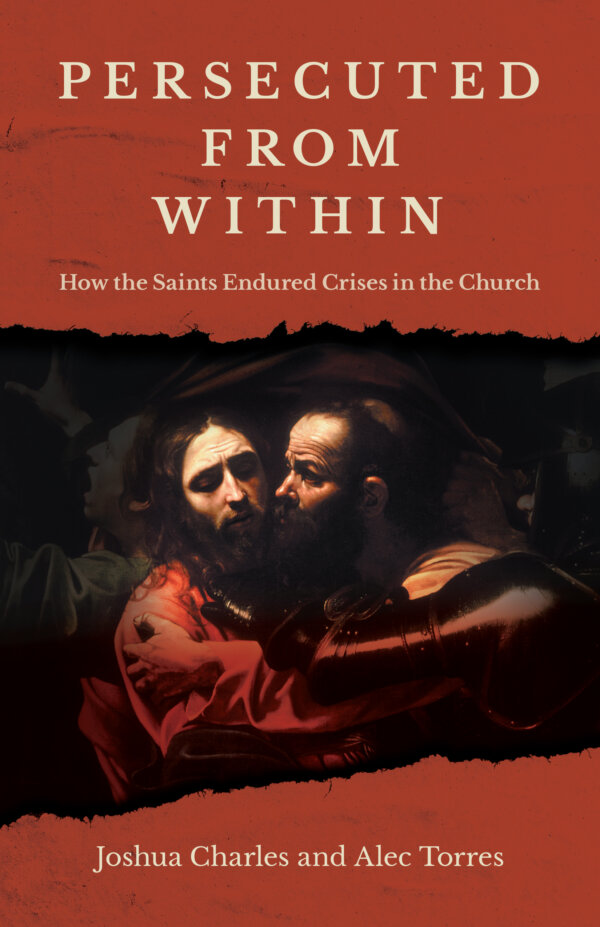
“Then Jesus asked him, ‘What is your name?’ He replied, ‘My name is Legion; for we are many’” (Mk 5:9).
The knowledge of what it means to be a person is inextricably bound up with the Faith of Christianity. An affirmation and cultivation of the personal can endure for a time perhaps after Faith has been extinguished, but gradually they too will be lost.[1]—Romano Guardini
G. K. Chesterton famously said that small mistakes in doctrine lead to huge blunders in human happiness. One of those huge blunders was exquisitely summarized in Justice Anthony Kennedy’s opinion in his 1992 Planned Parenthood vs. Casey Supreme Court decision: “At the heart of liberty is the right to define one’s own concept of existence, of meaning, of the universe, and of the mystery of human life.” That so many today find this statement unproblematic is a symptom of how a soft form of nihilism has triumphed in our time. According to this doctrine, nothing must be allowed to preempt the arbitrary will of the sovereign self. So triumphant is the principle today that no small number of people claim to believe that whether one is a man or a woman depends, not on one’s genetic endowment, but on one’s personal choice.
Our world is awash in the spiritual and psychological wreckage occasioned by the widespread adoption of the premise Justice Kennedy enshrined. Maureen Mullarkey provides the apt summation: “Decomposition of the cultural ecosystem that sustains our civil society has roots in Kennedy’s precept. And the nihilism it epitomizes.”[2] This nihilism may appear in the first instance as a welcome liberation from norms external to the individual, but it will eventually be recognized as an especially hypnotic form of social contagion.
Decades before the cultural theorist René Girard dubbed this perennial fact of human life mimetic desire, and began raising the alarm about its devastating effect in an increasingly post-Christian culture, the British novelist Virginia Woolf saw it operating in the lives of her contemporaries, and, she exposed it in her 1931 novel, The Waves. The chief protagonist of the novel, having tossed off the mantel of Christian faith, begins immediately to look around for another “master.” None can fill the void left by Christ. He says of himself:
“I changed and changed; was Hamlet, was Shelley, was the hero, whose name I now forget, of a novel by Dostoevsky; was for a whole term, incredibly, Napoleon; but was Byron chiefly.”[3]
Another of the characters in Woolf’s novel scoffs at his classmate precisely for his indiscriminate susceptibility to social influence:
“Once you were Tolstoy’s young man; now you are Byron’s young man; perhaps you will be Meredith’s young man; then you will visit Paris in the Easter vacation and come back wearing a black tie, some detestable Frenchman whom nobody has ever heard of.”[4]
The Polish American poet Czeslaw Milosz also saw this brewing crisis:
What reasonable man would like to be a city of demons,
who behave as if they were at home, speak in many tongues…
The purpose of poetry is to remind us
how difficult it is to remain just one person,
for our house is open, there are no keys to the doors,
and invisible guests come in and out at will.[5]
The self who chooses bears a resemblance to the person who decides, but the difference between the two is profound. “The revelation of the person,” writes Paul Evdokimov, “is the event of Christianity.”[6] If this is so, then there is no more urgent question than the one Kenneth Schmitz asks. “Can such a call to spiritual personhood be made today in such a way that it might be heard?”[7] The challenge is to show how anthropologically sound is the distinctively Christian understanding of personhood, and the work of René Girard is an indispensable resource for meeting that challenge today and doing so in the context of the shockingly rapid de-Christianization of Western culture.
Editor’s note: This short reflection is excerpted from Mr. Bailie’s recently published book: Apocalypse of the Sovereign Self: Recovering the Christian Mystery of Personhood, available from Angelico Press.
[1] Romano Guardini, The End of the Modern World, trans. Joseph Theman and Herbert Burke (Wilmington, DE: ISI Books, 1998), 98–99.
[2] Maureen Mullarkey, “Marginalia on Dobbs and Roe,” Studio Matters, July 4, 2022.
[3] Virginia Woolf, The Waves, (San Diego: Harcourt Brace Jovanovich, 1978), 249.
[4] Virginia Woolf, The Waves, (San Diego: Harcourt Brace Jovanovich, 1978), 87.
[5] Czeslaw Milosz, “Ars Poetica?” from The Collected Poems: 1931-1987. Copyright © 1988 by Czeslaw Milosz Royalties, Inc. Used by permission of HarperCollins Publishers.
[6] Paul Evdokimov, The Sacrament of Love, (Crestwood, NY: St. Vladimir’s Seminary Press, 1985), 53.
[7] Kenneth L. Schmitz, “The geography of the human person,” Communio 13 (Spring, 1986), 203, 204.
Photo by Tomas Robertson on Unsplash



